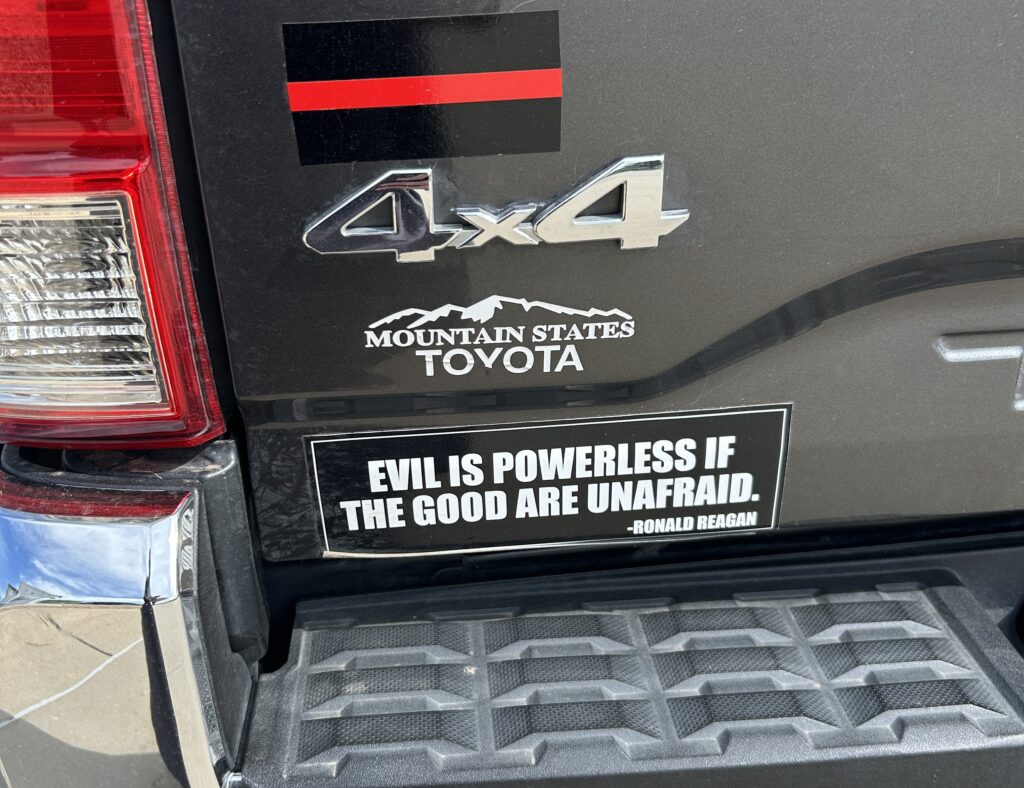Most American Catholics do not know the definition of a heretic. However, a smaller percentage of mainstream Catholics who have studied a little theology might know that Catholics used to call Protestants “heretics,” whereas they now prefer the term “separated brethren.” An even smaller percentage of Catholics, namely traditionalists, still prefer to label Protestants as “heretics” (as well they should.) However, most traditional Catholics today are hesitant to grant the moniker “heretic” to anyone in the clergy without a formal canonical trial. Why are they so free with the first group and hesitant with the second group?
They are afraid that an obvious heretic in the hierarchy as such undermines the indefectibility of the Church. (The indefectibility of the Catholic Church is her invincibility against any error of faith or morals, that the gates of hell will not prevail against her, and I very much believe in it.) However, many traditionalists today have a false understanding of the Catholic Church if they erroneously believe the Church’s indefectibility depends on modernist heretics. (One need only study the Arian crisis a little bit to see that not every bishop in pretty vestments is a Catholic. In fact, the Catholic Church eventually ruled all the Arian bishops to be non-Catholics even if they had valid sacraments at the time.)
But back to the topic that everyone is debating online today: Can an average lay Catholic recognize and reject a heretic in the alleged-hierarchy? I happily admit there are longer (and superior) articles to this one to show that any blue-collar Catholic can recognize a material public heretic (even if he be a member of the clergy) including Matthew McCusker writing here and Mark NVP quoting a Pope here and a longer article sourced from Fr. Paul Kramer here.
But today I’m going to give a shorter and Scriptural proof as to why you can recognize a heretic in the hierarchy without need of anyone in authority confirming it for you. In other words, a well-formed blue-collar Catholic can recognize any white-cassock heretic (er, I mean “collar”) even before the latter undergo a formal canonical trial or that mythical “imperfect Council.”
A few weeks ago in the old Divine Office, every priest had to read the second letter of St. John the Apostle. Although we read it in Latin in our ancient Roman Breviary, I will include the verses that stopped me in my tracks in English from two translations of the same chapter:
Everyone who goes on ahead and does not abide in the teaching of Christ, does not have God. Whoever abides in the teaching has both the Father and the Son. If anyone comes to you and does not bring this teaching, do not receive him into your house or give him any greeting, for whoever greets him takes part in his wicked works.—2 John 1:9-11 (ESV.)
or the same verses in an older translation with some original manuscript variations:
Whosoever revolteth, and continueth not in the doctrine of Christ, hath not God. He that continueth in the doctrine, the same hath both the Father and the Son. If any man come to you, and bring not this doctrine, receive him not into the house nor say to him, God speed you. For he that saith unto him, “God speed you,” communicateth with his wicked works.—2 John 1:9-11 (DRB.)
Whichever translation you choose above, we know that the above verses were written under inspiration of the Holy Spirit by St. John the Apostle as he exhorted a laywoman and her children on how to keep the faith pure. (See 2 John 1:1 if you doubt this.) Think about it for a minute: One of the first Apostles instructed a laywoman with no formal training in the First Century that she had the ability (and duty!) to recognize and reject (not resist!) anyone who came to her who did not remain in the doctrine of Christ (non manet in doctrina Christi—v.8.)
But wait! Was she supposed to wring her hands and complain that she was not trained in theology first? Was she supposed to show false-humility and say she couldn’t recognize a crafty goon not maintaining Apostolic doctrine (hanc doctrinam non adfert—v.10) until she receive approval from a bishop? Or perhaps she was courageous enough to recognize such a heretic, but then this new believer in Ephesus was supposed to text (on her mythical ancient cell-phone) St. Peter to make sure someone in Rome agreed with her appraisal of the bad man as a heretic?
Of course, all these propositions are ludicrous. St. John truly believed a blue-collar Catholic—even a new convert—could recognize a heretic straight-away. That woman did not have to wait for a bishop (like St. John) to confirm her smell-test. She didn’t even need to write her Apostle friend to confirm her well-informed intellect. The Apostle expected her to avoid anyone who didn’t hold to Apostolic Catholicism. Why? Because real Catholicism is simple, not complex. In the first century, she didn’t have the luxury to wait for a Cardinal in red to identify a wicked man on her doorstep as a material public heretic. In fact, her salvation depended on common-sense, not canon law.
St. John finished his letter to the lay woman with a pretty terrifying warning: Any minor interaction of that laywoman with a heretic meant she was “cooperating in his evil works” (communicat operibus illius malignis—v. 11.) This would be true for blue-collar trads today who do damage control for a certain white-collar heretic, even if they proceed with soft words to “give him the benefit of the doubt for awhile.” Such Catholics think they are taking the safe route of salvation because they walk the pathway of ostensible-obedience. However, they are actually on the most dangerous road in obeying imposters and heretics. Just look at the evidence before you accuse me of calling names.
Of course, St. John the Beloved would be the first to admit our judgment as Christians will primarily be the extent to which we lived with supernatural charity. But charity cannot exist without faith. And faith cannot exist while one follows a heretic, even if one thinks him to be in the hierarchy. This is why a blue-collar Catholic can and must recognize and reject (not resist) a white-collar heretic and avoid him before being tempted to enter into any canonical games. It’s common sense. It’s Biblical. It’s clear in Church history.

